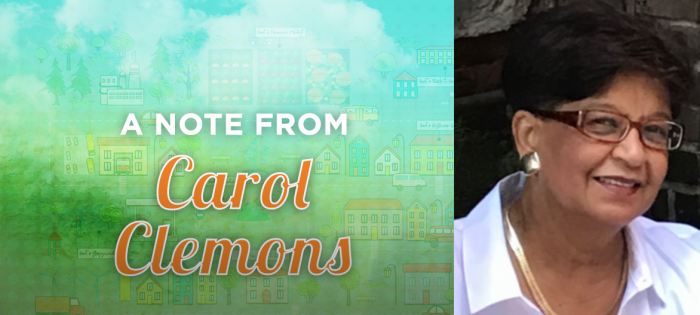Dear St. Lukers,
Our church’s 2020+ Vision includes the two pillars: Navigating Life and Reconciling Love. These two pillars call us to celebrate the diversity amongst us. One of the ways we are living into this calling is by intentionally honoring heritage months that reflect our diverse congregation. Helping to lead us in this effort is St. Luke’s Inclusiveness Committee. This team is led by Co-Chairs, Carol Clemons and Mark Adelhelm. Today, we welcome Carol Clemons as our Weekly Update guest author.
As an African American, I have always been aware of Black History Month, or African-American History Month, and that we celebrate Black History Month to recognize the sacrifices, contributions, and achievements of African Americans to the United States and the world. It was not until recently though, that I realized that I had a limited knowledge of the history behind Black History Month.
A realization that led me to ask the most basic questions: “Where did it begin, who started it, and why?” In my quest for these answers, I learned that Black History Month was initially named Negro History Week. It was conceived in 1926 both by Carter Woodson, a noted author and Harvard-trained historian, and the Association for the Study of Negro Life and History (ASNLH). They selected the second week of February to be “Negro History Week” because it coincided with the birthdays of Abraham Lincoln on February 12 and Frederick Douglass on February 14, two dates that Black communities had celebrated together since the late 19th century. This inaugural event inspired communities and schools across the nation to organize local celebrations, host performances, and to start history clubs.
The initial emphasis for Negro History Week was placed on encouraging teaching of the history of Black Americans in public schools. The first Negro History Week was met with a lukewarm response outside the African American community, but in the decades that followed it gained more recognition and acceptance, with mayors across the United States recognizing and endorsing it.
In 1969, a group of students and educators at Kent State University conceived the idea that Negro History Week should become Black History Month. The following year, 1970, the first celebration of Black History Month took place on the campus of Kent State University. In 1976, it received its first Presidential endorsement by President Gerald Ford. Since then, it has grown exponentially and is now celebrated throughout the United States, Great Britain, Canada, the Republic of Ireland, Germany, and the Netherlands.
Black History Month shines a light on many African Americans who deserve to be remembered, honored, and celebrated by all. Too often, their accomplishments and contributions in the fields of science, medicine, and technology are overlooked. These African American men and women dedicated their lives to the accomplishment of goals that are a benefit to all humankind today. During my search for the history of Black History month, I found a few pioneers I had not heard of, reinforcing the importance of Black History Month.
- Patricia Bath (born 1942) invented the Laserphaco Probe, a device that refined laser cataract surgery.
- Charles R Drew (1904–1950) studied transfusion medicine, and refined key methods of collecting, processing, and storing plasma. He is the physician responsible for America’s first major blood banks and the Red Cross Blood Donor Service.
- Mark E. Dean (born 1957) led the IBM team that designed the ISA bus – the hardware interface that allows multiple devices like keyboards, printers, and modems to be plugged into a computer. In 1999, he led the team of programmers that created the first gigahertz chip. Today, he holds three of IBM’s original nine patents.
The month of February is a chance for all Americans to learn details about our nation’s history that are often neglected or dismissed for their ugliness, as well as to honor our heroes and pioneers. Black History is American History. It is very important that we know our history, as it shapes who we are now and who we will be in the future.
All month long, St. Luke’s Inclusiveness Committee invites St. Lukers and friends to be in dialogue about important issues surrounding African Americans. One of the ways you can join the conversation is by attending this month’s free “Friday Film” Hidden Figures on Friday, February 22 at 6:00 p.m. in the Building C Attic.
RSVP for this month’s Friday Film here (requested but not required).
Grace and Peace,
Carol Clemons
Co-Chair of St. Luke’s Inclusiveness Committee and St. Luker Since 1999
Click here to read the full Weekly Update

